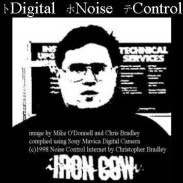The Digital Firestorm Reaches The Here And Now A Review of Pattern Recognition
1/19/2003 9:26:20 PM
©2003 by Christopher J. Bradley
Its been roughly 3 years since Gibson’s last science fiction novel touched down, and this one has so much Boeing that by the end you need an airlift. It’s actually set in the present but along the history line of the last sixty years jammed in with every element of bleeding edge that you could possibly think of. We are in, lets say, England, and then Tokyo, and then more England, and then Moscow, and then France. With fences and attaches of all sorts and street runners of antique computers the pace never cuts out.
The principle’s name is Cayce Pollard. She’s got a sort of boyfriend who’s a director of some vicious Russian war saga who isn’t in London at present. In the midst of receiving e-mails from a channeller for her missing father (presumed dead on September 11th), her apartment is broken into during the course of normal business. Cool hunting she calls it, free-lance marketing consulting which she is apparently very good at, she travels first class. Business allegiances begin to change and after a while, we begin to wonder if it’s really business after all, or something more sinister. You see, she has a horrible fear of the Michellin man, and what’s worse, he keeps appearing places he doesn’t belong.
She finds herself relying heavily on e-mail from a web contact named Parkaboy who is a “footagehead” that she met from a users group specifically dedicated to the discovery of information related to 135 hot film clips that have been appearing on the internet. How, why, or who are the questions that keep her up at night, and she finds herself more and more wrapped up in finding out who the “maker” of the clips is as time passes.
Gibson’s e-mails and intermittent cell phone calls and PDA references are countered by the more conventional packets of data folded in real envelopes and cases, carefully woven in cloth and string. And the mirror-world, Cayce’s representation of London on off-net time, is every bit as intricate as the spy story that is slowly unfolding. The evolution of global capitalism is at work and the forces binding it up are not all at agreeable purposes. Especially not in Russia.
When the subway maps begin to include templates for Claymore mine blast radii and Stegonographic watermarks are discovered in some of the footage, you know things are going to begin to really warp into high gear, the only question is, will you be able to keep up?
Our author handles the discussion of September 11th both artfully and respectfully. His rendering with the falling of rose petals in a store window, leaves no emotion un-wrent while not taking advantage of public hatreds or fanaticism. He appears to view it from the perspective of someone swept up, but not toppled by A Megalomania too intense to ever be properly expressed in words. The situation was artfully crafted and he does not dwell on the past, but looks to the future, and a settling on the present with hope.
And what helps me really enjoy this book, is the possibility for a sequel, A true kick into the next novel where Cayce may indeed discover more of her true place in the world as more than a function of fashion and a part of the greater community of modelers of what is to be. And who knows, maybe she will discover more about her father’s past.
Christopher J. Bradley


